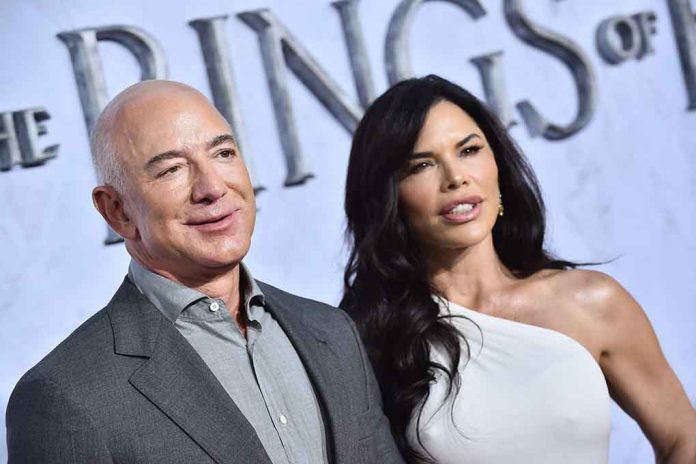🔴 Website 👉 https://u-s-news.com/
Telegram 👉 https://t.me/usnewscom_channel
The Washington Post’s decision to abandon presidential endorsements backfires spectacularly, costing them over 200,000 subscribers and sparking internal turmoil.
At a Glance
- The Washington Post lost over 200,000 digital subscriptions after deciding not to endorse a presidential candidate
- Owner Jeff Bezos blocked the paper from endorsing Kamala Harris less than two weeks before Election Day
- The decision led to internal resignations and a scathing joint column from 17 Post columnists
- Critics argue the move undermines the paper’s duty to inform readers during a critical time for democracy
Bezos’ Neutrality Gambit Backfires
In a move that has sent shockwaves through the media landscape, The Washington Post’s attempt at neutrality in the presidential race has resulted in a staggering loss of over 200,000 digital subscriptions. This exodus represents approximately 8% of the paper’s paid circulation, a clear rebuke from readers who expected the historically influential publication to take a stand in these politically charged times.
The decision, reportedly made by Amazon founder and Post owner Jeff Bezos, blocked the editorial board from endorsing Vice President Kamala Harris less than two weeks before Election Day. This last-minute intervention has not only angered subscribers but also sparked internal turmoil, leading to resignations from columnists and editorial board members.
An endorsement of Kamala Harris was drafted by Post staffers but had yet to be published, according to sources who spoke on the condition of anonymity.
The decision not to publish was made by The Post’s owner, Jeff Bezos, according to the same sources. https://t.co/WC9fovTcvB
— The Washington Post (@washingtonpost) October 25, 2024
A Chorus of Criticism
The backlash against The Post’s decision has been swift and severe, with criticism coming from both inside and outside the organization. Former Executive Editor Marcus Brauchli highlighted the gravity of the situation, stating, “It’s a colossal number. The problem is, people don’t know why the decision was made. We basically know the decision was made but we don’t know what led to it.”
This sentiment was echoed by a joint column signed by 17 Post columnists, including Pulitzer Prize winners, which declared, “The Washington Post’s decision not to make an endorsement in the presidential campaign is a terrible mistake.” The columnists argue that this is precisely the wrong moment to step back from endorsements, especially when one candidate poses a direct threat to press freedom and constitutional values.
The Broader Implications
The controversy surrounding The Washington Post’s decision highlights a growing trend among newspapers to avoid presidential endorsements. This shift is partly due to financial struggles and the desire to avoid alienating subscribers in an increasingly polarized political climate. However, The Post’s case stands out due to the timing and manner of the decision, as well as the significant backlash it has received.
The incident also raises questions about the influence of wealthy owners on editorial decisions and the challenges of maintaining journalistic independence. Bezos’ ownership of The Post and his other business interests, including Blue Origin’s government contracts, have led to speculation about potential conflicts of interest influencing the paper’s editorial stance.
A Lesson in Reader Expectations
The massive subscription cancellations serve as a stark reminder of the expectations readers have for their trusted news sources, especially in times of political turmoil. While some publications, like The LA Times and USA Today, have also chosen not to endorse presidential candidates, The Post’s abrupt reversal of its long-standing tradition has clearly struck a nerve with its audience.
As the media landscape continues to evolve, this incident may serve as a cautionary tale for other publications considering similar moves. It underscores the delicate balance newspapers must strike between maintaining editorial independence and meeting the expectations of their readers, particularly when it comes to taking a stand on crucial issues affecting the nation’s future.

